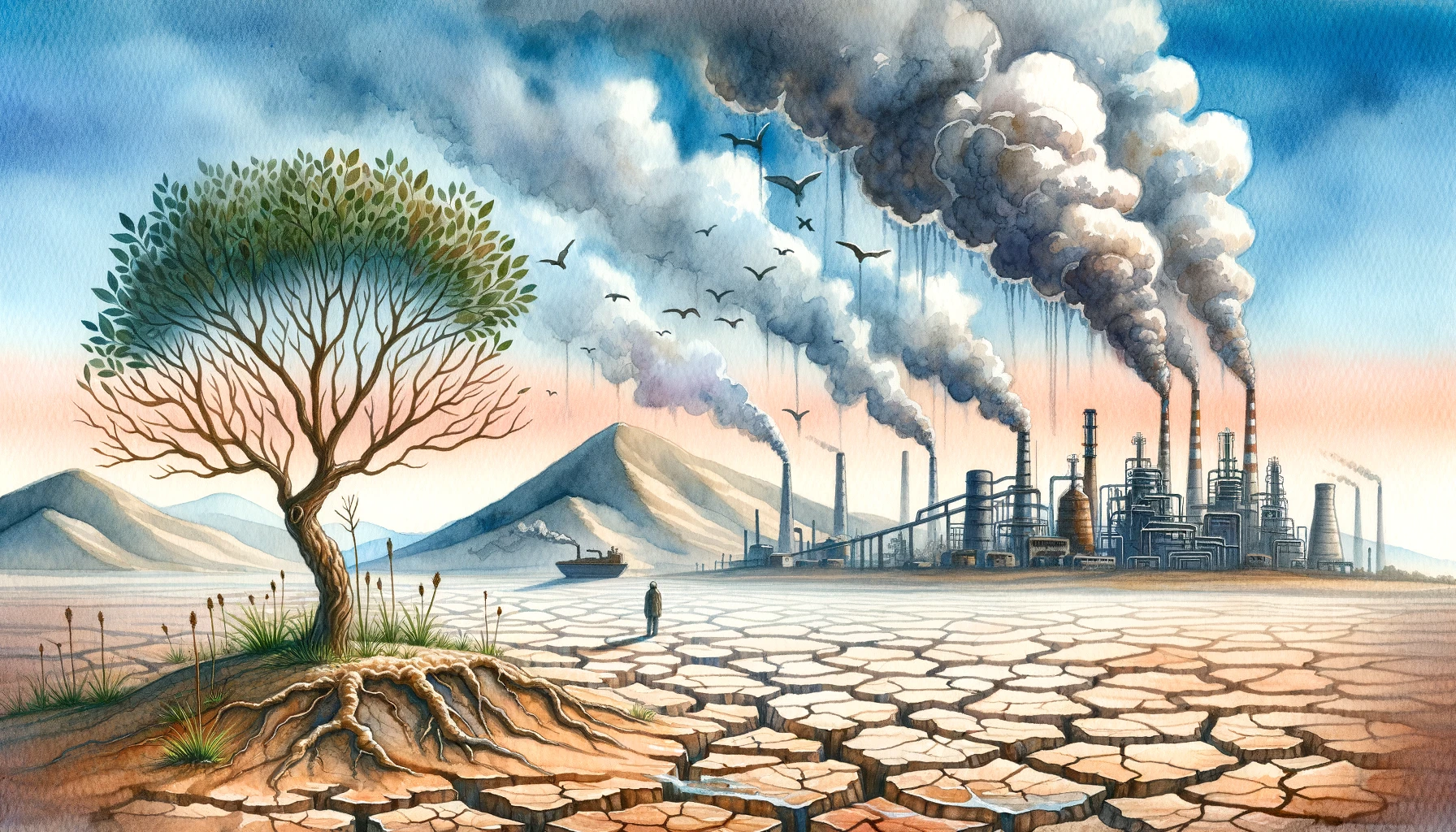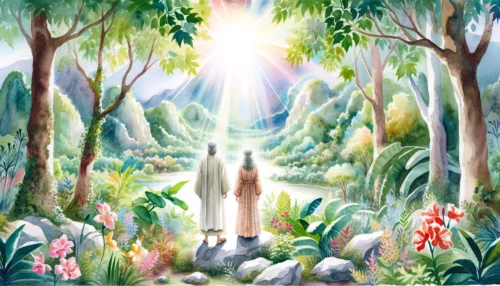Global warming has become one of the most pressing challenges of our time, with far-reaching consequences for the planet and all its inhabitants. As Christians, we cannot afford to ignore this issue or remain indifferent to its implications. Instead, we are called to understand the theological underpinnings of environmental stewardship and take action to protect and preserve God’s creation. In this article, we will delve into the topic of global warming and explore how Christians can think about it in a way that aligns with the teachings of the Bible. We will discuss the importance of recognizing our role as stewards, the theological foundation for environmental responsibility, and practical steps we can take to make a positive impact. Let us now explore together how we, as Christians, can confront the challenges of global warming.
Understanding Our Role as Stewards
God created the Earth and everything in it. In the book of Genesis (Genesis 1:1), we read that God saw His creation as good. We are not just passive observers of the world; rather, we are called to be stewards of God’s creation. This means that we have a responsibility to care for and manage the Earth and its resources in a way that honors God and benefits all of His creation.
Throughout the Bible, there are numerous passages that emphasize our role as stewards. In the Garden of Eden, Adam and Eve were given dominion over the Earth and instructed to “work it and keep it” (Genesis 2:15). This implies a sense of responsibility to cultivate and protect the Earth, to nurture and preserve its beauty and abundance.
In the New Testament, the apostle Paul reminds us that “the earth is the Lord’s, and everything in it” (1 Corinthians 10:26). This recognition reinforces the idea that we are not owners of the Earth but rather entrusted caretakers. Our role as stewards involves recognizing that everything we have, including the planet and its resources, ultimately belongs to God.
As responsible stewards, we must understand the impact of our actions on the environment. Global warming is a consequence of human activities that release greenhouse gases into the atmosphere, resulting in a rise in Earth’s average temperature. The consequences of global warming include extreme weather events, rising sea levels, loss of biodiversity, and disruptions to ecosystems.
Recognizing our role as stewards, we should be concerned about these environmental changes and take steps to address them. This involves being mindful of our carbon footprint and actively seeking ways to reduce it. We can do this by conserving energy, using renewable sources, practicing sustainable agriculture, and supporting policies that promote environmental sustainability.
We can also advocate for the protection of vulnerable communities who are disproportionately affected by the consequences of global warming. This includes advocating for policies that prioritize environmental justice and equitable distribution of resources. By embracing our responsibility as stewards, we can demonstrate our love for both God and our fellow human beings.
God has entrusted us with the role of stewards over His creation. This responsibility extends to the environment, including the issue of global warming. By recognizing our role as stewards, understanding the impact of our actions, and taking practical steps to reduce our carbon footprint, we can fulfill our duty to care for God’s creation. Additionally, as responsible stewards, we can advocate for environmental justice and the well-being of vulnerable communities. By embracing our role as stewards, we demonstrate our love for God and our fellow human beings.
The Theological Foundation for Environmental Responsibility
Christianity provides a strong theological foundation for environmental responsibility and our response to global warming. Our faith teaches us that God is the creator of the universe and that all of creation reflects His glory. In the Psalms (Psalm 24:1), we are reminded that “the earth is the Lord’s, and everything in it.” This understanding compels us to approach environmental issues with reverence and care.
The concept of stewardship is deeply rooted in Christian theology. In the parable of the talents (Matthew 25:14-30), Jesus teaches us about the importance of stewardship by illustrating how individuals are entrusted with different resources and expected to use them wisely. This parable emphasizes that we are accountable for how we manage the resources that God has given us, including the Earth.
The Bible teaches us about the interconnectedness of all creation. In the letter to the Colossians (Colossians 1:16), it is stated that “all things were created through him and for him.” This recognition highlights the unity and interdependence of all aspects of creation. When one part of creation is harmed, it affects the entire ecosystem. Global warming, with its detrimental effects on the environment, disrupts this delicate balance and threatens the well-being of both humans and other living beings.
We are called to practice love and compassion towards our fellow human beings. This love extends not only to our present generation but also to future generations. We are called to consider the impact of our actions on the well-being and inheritance of those who will come after us. By addressing global warming, we demonstrate our love for both present and future generations, ensuring that they can inherit a sustainable and thriving world.
The Christian faith also teaches us the importance of humility. Recognizing that we are not the owners of the Earth but rather stewards, we should approach environmental issues with a humble attitude. This means acknowledging our own role in contributing to global warming and taking responsibility for our actions. It also involves recognizing our limitations and seeking guidance and wisdom from God as we navigate the complex challenges of environmental stewardship.
Christianity provides a solid theological foundation for environmental responsibility. Our faith emphasizes the role of stewardship, accountability, interconnectedness, love for present and future generations, and humility. By understanding these theological principles, we can approach the issue of global warming with a deep sense of responsibility and take meaningful actions to protect and preserve God’s creation.
Taking Practical Steps Towards a Sustainable Future
In our efforts to address global warming as Christians, there are practical steps we can take to contribute to a sustainable future. These actions align with our faith and reflect our commitment to stewardship and the well-being of God’s creation. Here are some practical ways we can make a positive impact:
- Reduce energy consumption:
- Use energy-efficient appliances and light bulbs.
- Turn off lights and unplug electronics when not in use.
- Set thermostats at moderate temperatures and utilize natural light whenever possible.
- Embrace renewable energy:
- Explore options for installing solar panels on your property.
- Support renewable energy initiatives and advocate for their implementation.
- Consider switching to a renewable energy provider if available in your area.
- Practice sustainable transportation:
- Opt for walking, biking, or using public transportation whenever feasible.
- Carpool or share rides with others to reduce emissions.
- Choose fuel-efficient vehicles or consider transitioning to electric vehicles.
- Reduce waste and recycle:
- Minimize single-use items by using reusable alternatives.
- Recycle paper, plastic, glass, and other materials according to local guidelines.
- Compost organic waste to reduce methane emissions from landfills.
- Support sustainable agriculture:
- Purchase locally grown, organic produce.
- Reduce meat consumption or opt for sustainably sourced options.
- Engage in community-supported agriculture or grow your own food.
- Advocate for environmental policies:
- Stay informed about environmental issues and policies.
- Contact local representatives to express your concerns and support eco-friendly legislation.
- Join or support organizations that advocate for sustainable practices.
- Educate and raise awareness:
- Share knowledge about global warming and its impact with others.
- Engage in conversations and discussions within your faith community.
- Organize educational events or initiatives to raise awareness about environmental stewardship.
By taking these practical steps, we can actively contribute to mitigating the effects of global warming and fostering a more sustainable future. Our individual actions, combined with collective efforts, can have a significant impact on the well-being of the planet and future generations.
We can make a difference in the face of global warming by taking practical steps towards a sustainable future. By reducing energy consumption, embracing renewable energy, practicing sustainable transportation, reducing waste, supporting sustainable agriculture, advocating for environmental policies, and educating others, we demonstrate our commitment to stewardship and the well-being of God’s creation. Let us continue to be proactive in our efforts and inspire others to join us in caring for the Earth.
Answering the Call: Christians as Guardians of Creation
In a world grappling with the challenges of global warming, Christians are called to be guardians of creation. Our faith provides a strong foundation for understanding our role as stewards, recognizing the interconnectedness of all creation, and taking practical steps towards a sustainable future.
As we actively engage in caring for the Earth, let us remember these questions:
- How can we further integrate our faith with our environmental stewardship?
- How can we inspire others to join us in this important mission?
- What legacy do we want to leave for future generations?
May our actions be a testament to our faith, shining a light on the path towards a sustainable and flourishing world. Let us be bold in our commitment to environmental responsibility, knowing that our efforts are not in vain. By living out our Christian values and taking tangible steps towards caring for the Earth, we demonstrate our love for God and His creation. Through our collective actions, we can make a difference, inspire others, and be agents of positive change. Together, as faithful stewards, we can help create a future where the beauty and abundance of God’s creation are cherished for generations to come.














